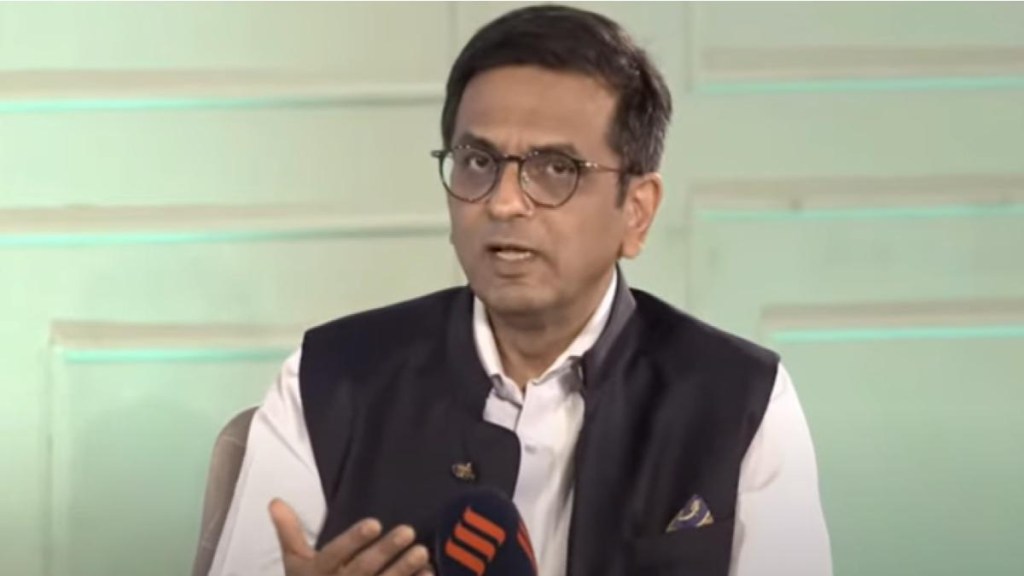Ahead of his retirement on November 10, Chief Justice of India D.Y. Chandrachud laid out his views on the role of the judiciary, emphasising that true judicial independence isn’t about ruling against the government every time.
Speaking at an event hosted by The Indian Express on Monday, the outgoing CJI highlighted the complex dynamics facing today’s judiciary, including the rise of social media and pressure groups that often attempt to sway court decisions.
Also Read:Nothing wrong in PM’s visit at my residence for Ganpati puja: CJI Chandrachud at Express Adda
“Traditionally, judicial independence was defined as independence from the executive. Independence from the judiciary even now means independence from the government,” he said.
“Our society has changed. Particularly with the advent of social media, you see the group of interest groups, pressure groups, and groups which are trying to use electronic media to put pressure on the Courts to arrive at certain outcomes. What you increasingly find is that a lot of segments of these groups say, well, ‘if you decide in my favour, you are independent. If you don’t decide in my favour, you are not independent,” he added.
Also Read:‘Sat before God, told him to find a solution’: CJI Chandrachud recalls delivering Ayodhya verdict
CJI further pointed to his ruling on electoral bonds as an example of this. “When you decided electoral bonds, ‘Oh, you are independent!’ But if a verdict goes in favour of the government, then you are not independent. That is not my definition of independence,'” he noted.
The Chief Justice explained that judicial independence grants judges the freedom to decide where justice lies — guided by the law and the Constitution — rather than by the public’s expectations.
Also Read:PM Modi attends Ganesh puja at CJI Chandrachud’s residence – Watch Video
In response to questions about whether the Court’s approach changes following major events, like the recent Lok Sabha elections, CJI Chandrachud clarified that cases are decided based on constitutional principles, not political atmospheres. “We decided the electoral bonds case even before the June 4th verdict. We decided the matter even before the country went into elections,” CJI said at The Indian Express Adda.
Stressing the need for gradual shifts in jurisprudence, CJI Chandrachud concluded that stability is essential for a resilient and trustworthy judiciary. “That incremental change coming in from the Court is very crucial to maintain the stability of our jurisprudence, to ensure there is no radical shift from the left to the right or up to the bottom.”
CJI Chandrachud’s comments resonate in a climate where the judiciary faces mounting scrutiny not only from government quarters but also from public opinion fueled by social media, bringing the complexity of judicial independence into sharp focus as he prepares to pass the baton.

